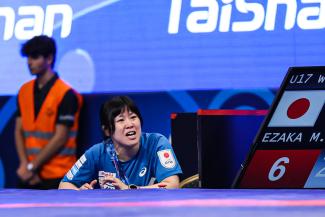United World Wrestling Announces Financial Support for Smaller Wrestling Developing Nations
Wednesday, January 27, 2021 - 11:35 By UWW Development

On the 26th of January 2021, the UWW Development Department announced the availability of Technical Assistance for smaller wrestling nations and developing countries to attend the Tokyo Summer Olympic Qualifier Tournaments.
Olympic Qualifying Tournaments & Acclimation Camps (2021)

This financial support will help cover the costs of the international travels and accommodations for athletes to participate in the qualifiers. A maximum of 2 athletes and 1 coach per national federation will be accepted. Admitted athletes and coaches must follow all UWW sanitary protocols . All applications must be submitted by member federations via their official UWW email address to the UWW Development Department before the above-indicated deadlines.
Further details about the support will be shared with each respective continent in the coming week.
‘Due to the impact of the COVID pandemic, many federations are facing financial difficulties to support their athletes attending competitions. We know that it is crucial for these athletes to be able to attend these qualifiers, as these competitions are the only pathway for them to qualify for the Olympic Games, to have a chance to achieve their dreams,’ said Mr Lalovic. ‘We have been investing more than 50% of our annual income in supporting various wrestling development programs and projects worldwide, and athletes continuously remain the focus of our work.’
Through our collaboration with Olympic Solidarity, the Continental Councils and other important partners, 1’255 athletes and coaches benefited from 200 UWW development activities during the 2017-2020 Olympic cycle.



Share your thoughts.
Comments